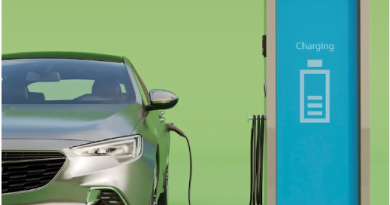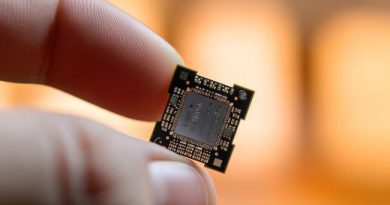The Role of Electrical Engineers in Smart Cities
The Role of Electrical Engineers in Smart Cities
Smart cities are urban areas that use electronic methods and sensors to collect data and improve the efficiency and sustainability of their services and operations. Smart cities aim to optimize city functions and promote economic growth while improving citizens’ quality of life and well-being using intelligent technologies and data analysis.
Electrical engineers design, develop, test, and maintain electrical systems and devices that power our modern world, such as power grids, communication networks, computers, smartphones, robots, cars, planes, satellites, and medical equipment. Electrical engineers play a vital role in the development of smart cities by providing their expertise and skills in various aspects and domains of innovative city applications, such as:
- Smart Grids and Energy Management:
This involves designing, developing, and maintaining power generation, transmission, distribution, and utilization systems that use renewable energy sources, smart meters, demand response, energy storage, microgrids, etc., to reduce greenhouse gas emissions and dependence on fossil fuels, increase energy efficiency and security, and enable peer-to-peer energy trading.
- Intelligent Transportation Systems:
This involves designing, developing, and testing transportation systems and networks that use wireless communication, sensors, GPS, artificial intelligence, etc., to improve traffic flow and safety, reduce congestion and pollution, provide real-time information and navigation, and enable autonomous vehicles.
- IoT and Sensor Networks:
This involves designing, developing, and testing networks of connected devices that communicate and exchange data through the Internet or wireless networks. IoT and sensor networks have many applications in smart cities, such as smart homes, buildings, factories, healthcare, environment,t agriculture, etc.
Smart Buildings and Infrastructure: This involves designing, developing, and testing buildings and infrastructure that use sensors, actuators, controllers, etc., to monitor and control various parameters and functions, such as temperature, lighting, ventilation, security, fire safety, water quality, etc.
- Data Analytics and Urban Planning:
This involves analyzing and processing the large amount of data collected from various sources and systems in smart cities to provide insights and solutions for urban planning and management, such as population growth, land use, public services, environmental issues, etc.
- Renewable Energy Integration:
This involves integrating renewable energy sources, such as solar panels, wind turbines, hydroelectric dams, etc., into the existing power grid or creating new microgrids or nano grids that can operate independently or in parallel with the primary grid. Renewable energy integration can help reduce greenhouse gas emissions and dependence on fossil fuels, increase energy efficiency and security, and enable peer-to-peer energy trading.
- Cybersecurity and Resilience:
This involves protecting and securing the data and systems in smart cities from cyberattacks or natural disasters that can compromise their functionality or performance. Cybersecurity and resilience can help ensure the reliability and availability of the services and operations in smart cities.
- Research and Innovation:
This involves conducting original research contributing to the advancement and innovation of electrical engineering and intelligent cities. Research and innovation can help create new technologies or improve existing ones to enhance the citizens’ quality of life and well-being in smart cities.
Conclusion
Electrical engineering is a rewarding career that offers many opportunities for growth and development in the context of smart cities. Electrical engineers can apply their knowledge and skills in various domains and aspects of innovative city applications to create and improve technologies that make urban life more efficient, sustainable, comfortable, and enjoyable. By following the tips and advice in this blog post, you can learn more about the role of electrical engineers in smart cities and how you can pursue this career path.
Frequently Asked Questions (FAQS)
1. What are smart cities, and why are they important?
- Smart cities use technology and data-driven solutions to enhance urban living, improve efficiency, and address urban challenges like traffic congestion and resource management.
2. How do electrical engineers contribute to the development of smart cities?
- Electrical engineers play a vital role in designing and implementing smart infrastructure, including intelligent transportation systems, energy-efficient buildings, and communication networks.
3. What are some key areas where electrical engineers are involved in smart city projects?
- Electrical engineers are involved in areas such as smart grid systems, IoT sensors, renewable energy integration, electric mobility, and advanced data analytics.
4. How can smart grids benefit smart cities, and how do electrical engineers contribute to their development?
- Smart grids enhance energy distribution efficiency, reliability, and integration of renewable sources. Electrical engineers design, implement, and maintain smart grid systems.
5. What is the role of electrical engineers in creating energy-efficient buildings in smart cities?
- Electrical engineers design energy-efficient electrical systems, lighting, HVAC controls, and smart building technologies to reduce energy consumption in structures.
6. How do electrical engineers support electric mobility in smart cities?
- They work on the development of electric vehicle charging infrastructure and systems for optimizing EV charging and integration with the grid.
7. What technologies do electrical engineers use to improve traffic management in smart cities?
- Electrical engineers contribute to intelligent traffic signal systems, traffic flow modeling, and the development of connected and autonomous vehicles.
8. Can electrical engineers help make water and wastewater management smarter in cities?
- Yes, they design and maintain smart water and wastewater management systems, including sensors, data analytics, and automation.
9. How do electrical engineers ensure the security and privacy of data in smart city projects?
- They implement cybersecurity measures and data encryption techniques to protect sensitive information in smart city systems.
10. Are there ethical considerations for electrical engineers in smart city development?
- Yes, ethical considerations include ensuring equitable access to technology, addressing privacy concerns, and minimizing environmental impact.
11. What is the role of electrical engineers in developing communication networks for smart cities?
- They design and maintain communication infrastructure, including 5G networks, to support the connectivity needs of smart city applications.
12. Can electrical engineers contribute to sustainable and resilient infrastructure in smart cities?
- Yes, they design systems that promote sustainability through renewable energy integration and resilience through backup power solutions.
13. How can electrical engineers support the implementation of IoT devices and sensors in smart cities?
- They design and integrate IoT systems, enabling the collection of data for various applications, from waste management to air quality monitoring.
14. Do electrical engineers collaborate with other professionals in smart city projects?
- Yes, they often collaborate with urban planners, architects, data scientists, and other professionals to create holistic smart city solutions.
15. What is the future outlook for the role of electrical engineers in smart city development?
- Electrical engineers will continue to be at the forefront of smart city innovation, addressing urban challenges and improving the quality of life for city residents.



